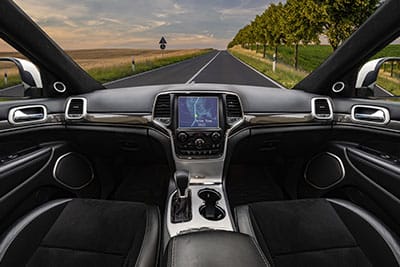Can a self-driving car really be safe?
West Virginia residents should learn about some of the complexities surrounding self-driving cars and how safe they really are or can be.

West Virginia experienced over 300 vehicular fatalities every year from 2010 through 2013 according to records from the National Highway Traffic Safety Administration. In 2014, the number went down slightly to 272 but that still represents significant loss of life.
Automobile accidents are often caused by mistakes or poor choices made by drivers. In fact, the NHTSA indicates that more than 90% of all crashes are caused by human error of some sort. This naturally leads one to think that self-driving cars could be the answer to this problem but is that really so?
Research not conclusive
Recent research on autonomous cars conducted by the RAND Corporation suggests that it is not really possible to know whether or not these vehicles could be the safe answer everyone wants them to be. This is due mostly to the fact that there is a dramatic lack of evidence with which to draw this conclusion.
Human-driven vehicles log more than three trillion miles a year on U.S. roads and highways. In comparison, autonomous cars have travelled just over one million and that took many years to achieve.
In addition, the University of Michigan Transportation Research Institute suggests that self-driving vehicles may actually be more likely to cause accidents than their human-driven counterparts.
Human error not the only factor
CNBC points out that computer-powered vehicles can be prone to attacks by hackers which is something that does not occur with traditional vehicles. Environmental factors may also be more difficult for autonomous vehicles to navigate, thereby potentially increasing the dangers and risk of an accident.
Track record so far
Consumer Reports explains that over 15 months of testing with the Google-created self-driving vehicle saw the need for human intervention more than 22 times per month. In a large percentage of these instances, the vehicle itself handed over control to the human driver. There were also some cases in which a human driver took control when it was determined to be necessary. The Valentine’s Day accident in Northern California in which a Google vehicle hit a transit bus confirms that these self-driving cars can cause accidents.
Consumer groups have been lobbying for the development of national safety standards around self-driving cars. So far, there have been no such standards released although reports indicate the request is being addressed.
Recommendations for drivers
Whether with an autonomous or a human-driven vehicle, when an accident happens, West Virginians deserve help. Compensation is just when injury or death occurs due to the negligence of another person or even a computer. Talking to an attorney after a crash is always recommended in order to get the right help in these situations.

